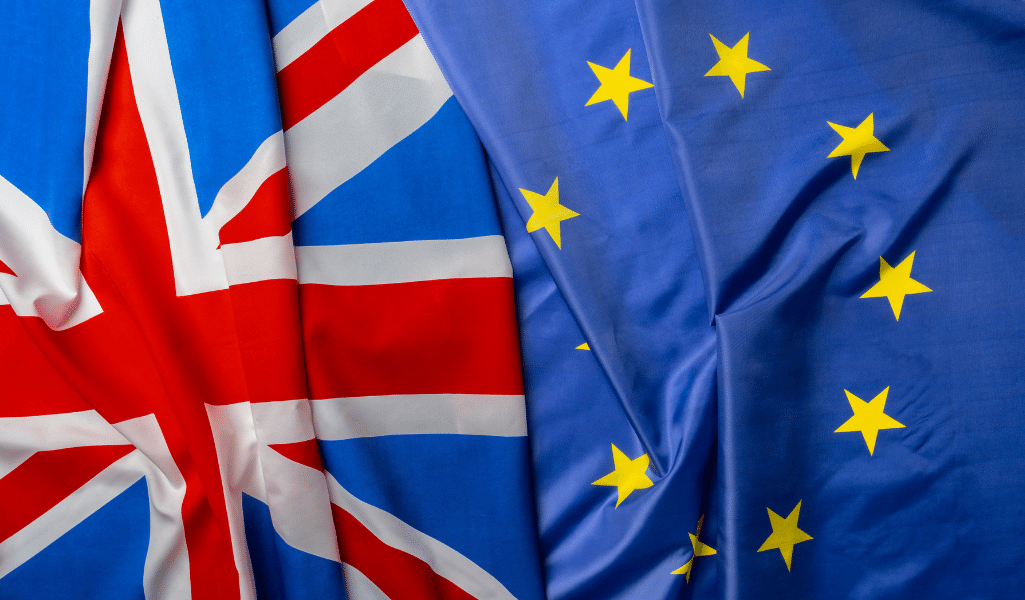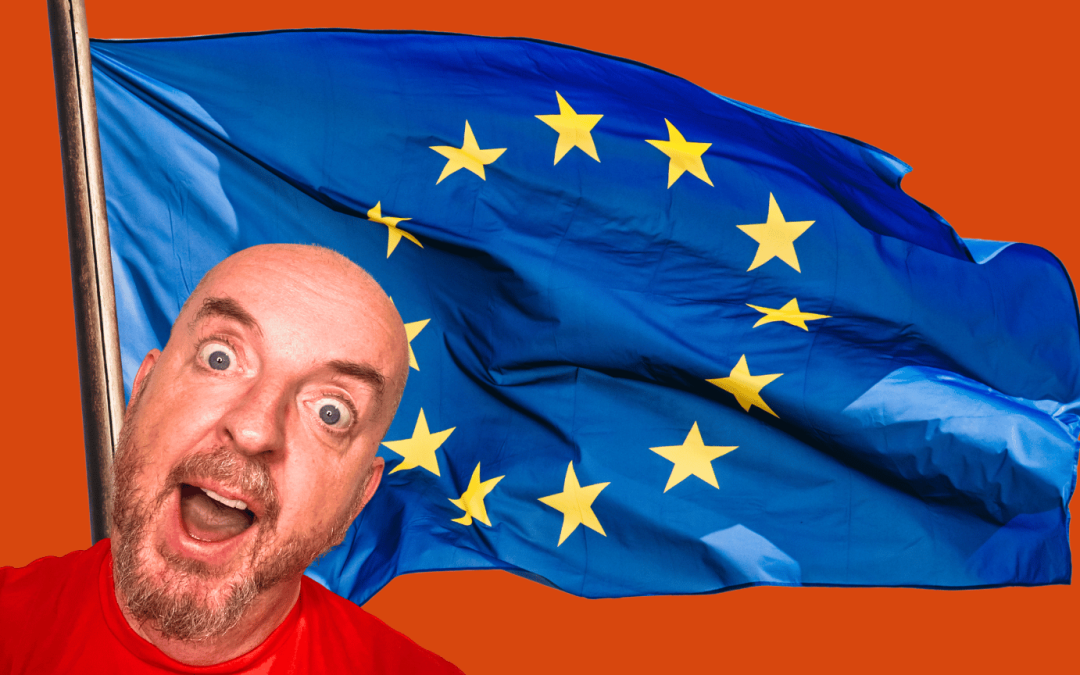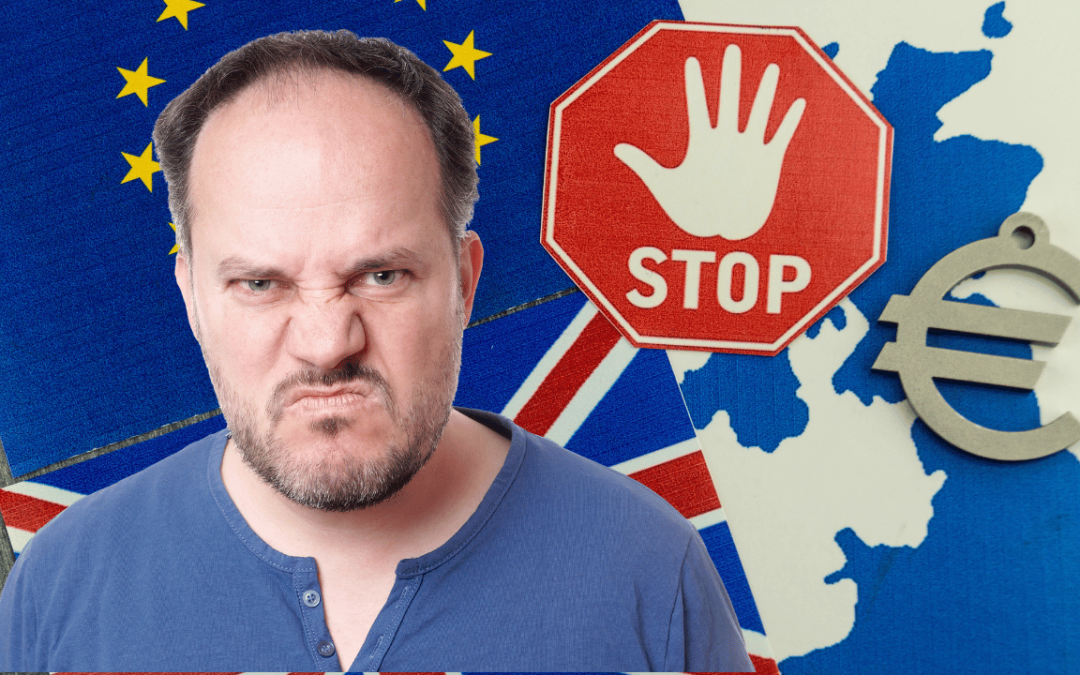In this article, I dive into a frequent query for UK passport holders – “Should my passport be stamped if I live in Spain?” I’ll give you the official regulations, along with reports from Brits about their experience of passport control, to shed light on what should happen, what is happening and what difference ETIAS will make when it’s implemented in the near future.
Prefer to watch the video? Click the picture below.
Should your UK passport be stamped if you’re a Spanish resident? Will anything change when ETIAS is up and running? Stick around, and you’ll find out.
I’m going to tell you what’s happening on the borders when UK passport holders come through with their Spanish residency cards, with real reports from Brits, an explanation of the official rules, and what it will mean to you when the new ETIAS system is implemented.
What is ETIAS?
It’s a new travel authorisation that will be required for citizens of visa-exempt countries, including the UK, who wish to enter the Schengen Area.
Is your passport supposed to be stamped or not if you’ve got a Spanish residency card (TIE)?
It depends! Let’s give the ‘simple’ answer first, then look at the possible differences in circumstances, and then find out what Brits are actually experiencing when they enter the Schengen Area.
Does it depend on how you travel to Spain?
Well, the simple answer is, it shouldn’t make a difference where or how you enter the Schengen Area. If you have a TIE card for Spain, your passport shouldn’t need to be stamped. Here’s what it says on the official Europe website about passport stamps for resident benefitting from the Brexit Withdrawal agreement:
“Depending on national law, border guards may stamp your passport when entering and exiting your country of residence. This practice does not serve any real purpose as the 90-day stay limitation does not apply to beneficiaries of the EU-UK Withdrawal Agreement (including their family members) when travelling to their EU country of residence. However, to prove your residence status and associated rights (i.e. the non-applicability of the 90-day stay limitation in a 180-day period), we advise you to show your national residence documents issued (under the EU-UK Withdrawal Agreement) in your EU country of residence when crossing an external Schengen border.”
So did I get a stamp because I’m not covered by the Brexit withdrawal agreement? And does it make a difference if you’re a permanent resident instead of just temporary?
It’s the same for everyone, either way you’ve got a TIE. If you’re a temporary resident, the stamp might be useful in determining whether you’ve spent enough time in Spain so you can get permanent residency. But it’s not the only proof so it’s not the be all and end all.
What have Brits been reporting on Facebook about what’s happened to them at the border?
These are all real comments by expats:
This seems to be a bit of a conundrum. When we went back to the UK, my passport always got stamped but my husband’s never. And coming back, the lovely man at passport control asked me if I wanted mine stamped, I said ‘I don’t know, sweetie, do to me whatever you want’. The man whom my husband went to however, took one look at him and stamped away.
Mine has been stamped every time and I have had residency for 35 years. It doesn’t matter to me, we as residents are not on the 90 days rule.
I travel to France from Malaga and there’s passport control when I get to Bordeaux airport, but mine never gets stamped and I’ve never shown my TIE. I wonder, when they scan my passport does it show that I’m a Spanish resident? I have no idea what it shows – I’d love to know!
I’ve just checked on the Citizen’s Advice Bureau page and it says that passports should NOT be stamped. It’s sooooooo confusing! Hopefully the new system when it comes in will help, not hinder – but I doubt it!
They don’t seem to know what to do, when I went back to the UK I gave them my passport and TIE, he handed me back the passport without even looking at it and checked my TIE. On returning they didn’t check either, just waved me through!
Residents should not receive a stamp in their passport, if you have a valid resident permit, the stamp is disregarded.
Disregarded by whom? Once you have a stamp, you’re reliant on every border agent in Schengen accepting that another border guard has made a mistake. In my experience employees of large companies and government agencies are not very good at accepting they’ve made mistakes.
Why does it matter if you have a stamp or not?
I arrived today at Alicante, showed my passport and residency card to passport control and they stamped me. I questioned this but was told it’s a new ‘Act’ and everyone will receive a stamp, resident or not! I did try to question this but I was told to move on!
The UK government website says your passport should not be stamped, and a number of UK passport holders I know who live in Spain insist that their passports are not stamped. If you’re happy to have your passport stamped then bully for you, it makes no difference to me.
The stamps have very little to do with it. Your passport is scanned by immigration and registers your movements in the government computer system. But you can use the stamps to show off to your friends.

Okay, you’ve heard lots of different reports there. It seems that in spite of the seemingly simple rule, people are experiencing every variation of possibility. It can depend, I’m sure, on the knowledge, stress levels, and mood of the individual at passport control, and perhaps even how busy they are at that moment. Who knows, they might be able to recognise from experience what kind of traveller you are in that moment you walk towards them, or they might be on high alert for terrorism and much less bothered about stamps.
Will ETIAS help?
ETIAS should help in lots of ways, but one important thing is that passports won’t really need to be stamped anymore, because along with what’s called the EES, or Entry/Exit system (the system that will register all of the data), everything will be digital, and connected to your passport information, and those details will be shared with other government departments, so in theory they’ll know straightaway whether you’ve got a TIE, and they’ll know whether you’ve overstayed your 90 days if you’ve been in the Schengen Area other than in Spain.
Will that make it easier to renew my Non Lucrative Visa residency?
Yes indeed. When you go for your renewal appointment, the officials should already know whether you’ve stayed in Spain for long enough, although if you’ve been travelling out of Spain by land but not crossed out of the Schengen Area, it’s possible your passport won’t show that. However, there are other ways that your digital trail can be monitored – there’s number plate recognition, traffic police records, credit card use, mobile phone records, all of these can be accessed if necessary.
It’s Big Brother! It’s a conspiracy!
Calm down, you’d be complaining much more if terrorists and illegal immigrants weren’t being monitored properly, and not forgetting other Brits who are trying to live in Spain ‘under the radar’ who are causing problems for all of us.
Any news about when ETIAS is going to be happening?
All that we know is that it will be rolled out in 2024, after the EES is put in place, you’ll hear about it on YouTooSpain as soon as they do. Once you hear about EES, ETIAS won’t be too far behind.
Is it going to be difficult and expensive?
Quite the reverse, it’s all online, will take about 5 minutes to complete and cost about 7 Euros, which is actually less than the cost of administering the service, so if you’re thinking it’s all a money making exercise for the EU, then you’d be wrong.
Any more questions?
Ask in the comments below, or you can ask the experts live on Saturday mornings.
Peace & Love! Peas & Fluff! Let’s dance!
Article by Skatz











0 Comments